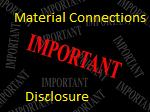
Here’s a recent case that your Internet attorney is probably talking about. There’s a company that sells how-to-play-the-guitar DVDs online that goofed up and got nailed by the U.S. Federal Trade Commission (FTC).
Because of the mistake, the business will fork over $250,000 to settle the charges the FTC brought against it.
Here’s what happened…
To boost credibility, the company used “consumer” testimonials and positive “independent” reviews that promoted the products online.
Unfortunately, the endorsements weren’t by consumers or independent. Instead, the positive endorsements were by affiliates who got paid commissions when sales occurred. According to the FTC, the company’s affiliates wrote “endorsements in articles, blog posts, and other online editorial material…”
Since December 1, 2009, the FTC has made it very clear that material connections, such as affiliate status, must be disclosed when promoting online. If you have any questions about material connections and disclosures, be sure to discuss them with your Internet attorney.
What’s the lesson?
You can’t pretend to be impartial when you’re actually getting paid commissions on the products and services you promote. Deception just begs for the FTC or your state attorney general to launch an investigation or even file a lawsuit.
Material connections extend beyond affiliate status. For example, if you’re promoting something because of your friendship with the seller, that needs to be disclosed too.
The goal is to give consumers all relevant facts so they can make an informed decision whether or not to purchase what’s being piked.
To your online success!
-Mike the Internet Attorney
